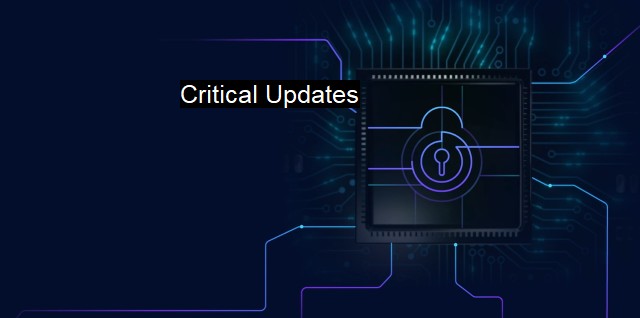What are Critical Updates?
The importance of critical updates: how software updates are essential in ensuring cyber threats are kept at bay.
"Critical Updates" refers to crucial upgrades released by software or hardware firms to bolster the security aspects of their products to boost their resilience against cyberattacks. They are quintessential to strengthen a system's defense mechanisms and prevent hackers from exploiting vulnerabilities to launch virus attacks, which makes it a term widely used in the context of cybersecurity.Software developers regularly discover vulnerabilities buried deep within their products. Once discovered, these loopholes could compromise the product's security architecture and its functionality, leaving a backdoor for cybercriminals to exploit. Within no time, cyber attackers may access confidential and sensitive data, often storing high stakes information. To prevent this, software developers push forth critical updates to correct the flaws in the software, urging users to apply these updates to strengthen the security features intrinsic to the product.
In the realm of computer operations, cybersecurity, and antivirus systems, critical updates are not necessarily about introducing more functionality or increased efficiency. Instead, these updates focus on increasing security, plugging gaps, fixing vulnerabilities, and mitigated risks associated with different types of malware that could otherwise be detrimental to computer systems.
To understand how critical updates function, think about it as your body's immune system: the vaccines you receive strengthen this system against some viruses, but when mutated or new viruses Attack, the immune system needs another boost or "update" to face them effectively. Thus, just like hackers who mutate or create new viruses, the added strength from the vaccine boosts the immunity to deal with these.
In antivirus programming, critical updates frequently characterize new pathogens that the system will recognize and defend against. Some advanced viruses fly underneath the radar until it may be too late to cure the shock they've delivered to a system’s functionality. When these new threats are detected by the IT community or the software developers, the situation initiates another round of critical updates.
Modern cyber threats are continually evolving, with opportunistic hackers adapting to the countermeasures in place to gain unauthorized access to sensitive systems. Therefore, having updated software in place should be viewed as a preventative measure to impede potential threats. Skipping updates can lead to unwanted exposure of one's data, making them susceptible to hackers.
When it comes to an individual user or company, the main point here is to regularly download critical updates whenever they become available. Even though it causes occasional downtime while being installed, these moments of inactivity are a small price to pay as they silence potential rogue code and keep the integrity of the system intact.
Today even the most reputable organizations could potentially face cyber threats; hence, the need for critical updates cannot be overstated. They are central to cybersecurity health checkups and are no less important than antivirus software. While there may be a sizable number of people who believe they are immune to the virus, just like in the world of health, such presumptions are unsafe behavior applied in cybersecurity. Having an antivirus but postponing a crucial update is analogous to washing your hands with sanitizer: washing alone can eliminate germs, but doing this as well as getting a vaccination expands the immune system’s power threefold. critical updates in the context of cybersecurity are an essential part of maintaining software's health, reliability, and security.

Critical Updates FAQs
What are critical updates?
Critical updates are software updates that address security vulnerabilities in a system, application or antivirus program. These updates are released to fix bugs that could be exploited by cybercriminals to gain unauthorized access to your device or steal your personal data.How often should I install critical updates?
You should install critical updates as soon as they become available. Cybercriminals are known to exploit vulnerabilities in systems and software within hours of their discovery, meaning that the longer you wait to install updates, the more vulnerable your device becomes.What happens if I don't install critical updates?
If you don't install critical updates, your device may become vulnerable to a cyber attack. Cybercriminals can exploit vulnerabilities in your system or antivirus software to infect your device with malware or steal your sensitive information.What can I do to ensure that critical updates are installed promptly?
To ensure that critical updates are installed promptly, enable automatic updates on your device. This will allow your operating system or antivirus program to automatically download and install updates as soon as they become available. You should also regularly check for updates manually and install them as soon as possible.| | A | | | B | | | C | | | D | | | E | | | F | | | G | | | H | | | I | | | J | | | K | | | L | | | M | |
| | N | | | O | | | P | | | Q | | | R | | | S | | | T | | | U | | | V | | | W | | | X | | | Y | | | Z | |
| | 1 | | | 2 | | | 3 | | | 4 | | | 7 | | | 8 | | |||||||